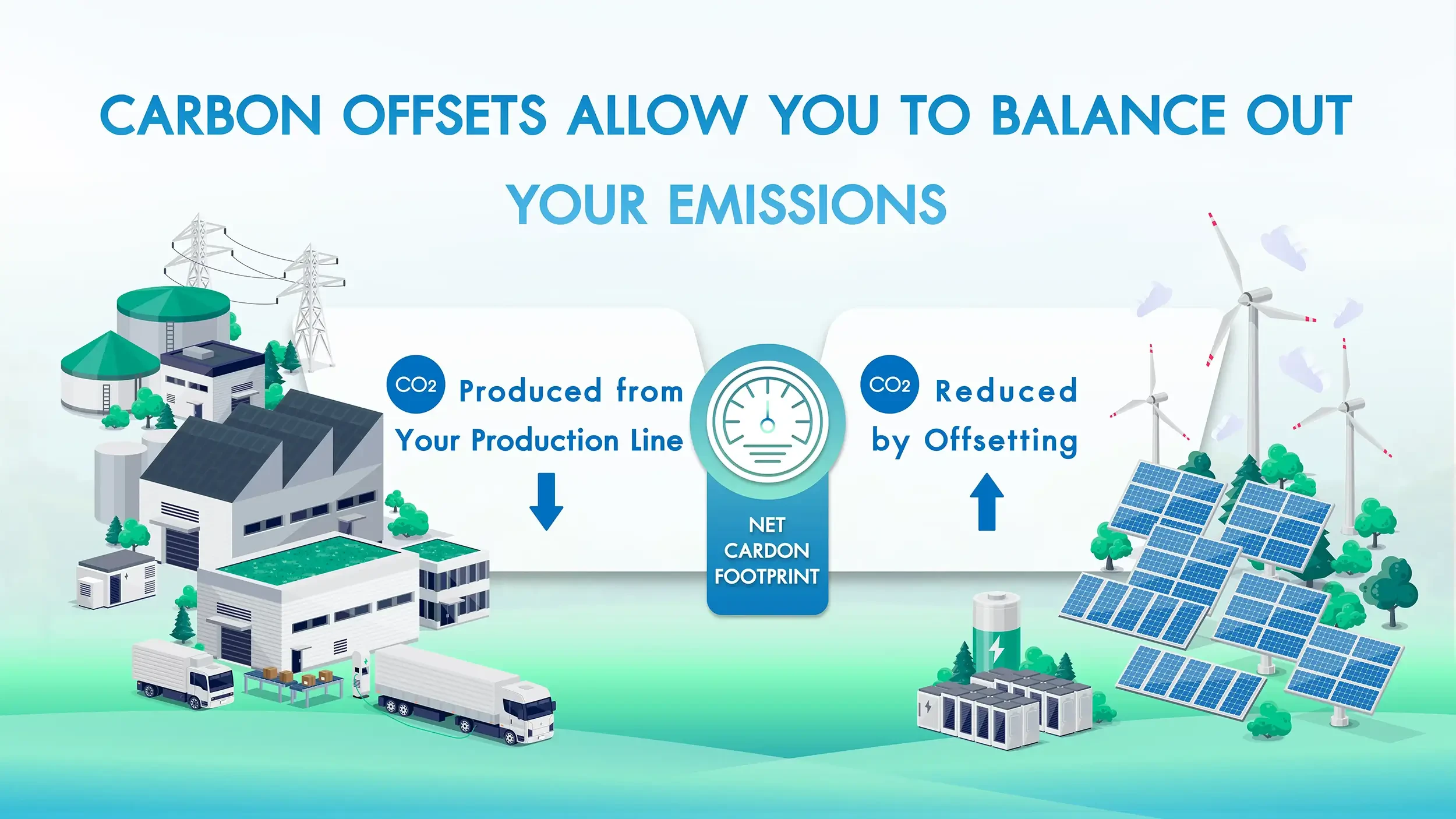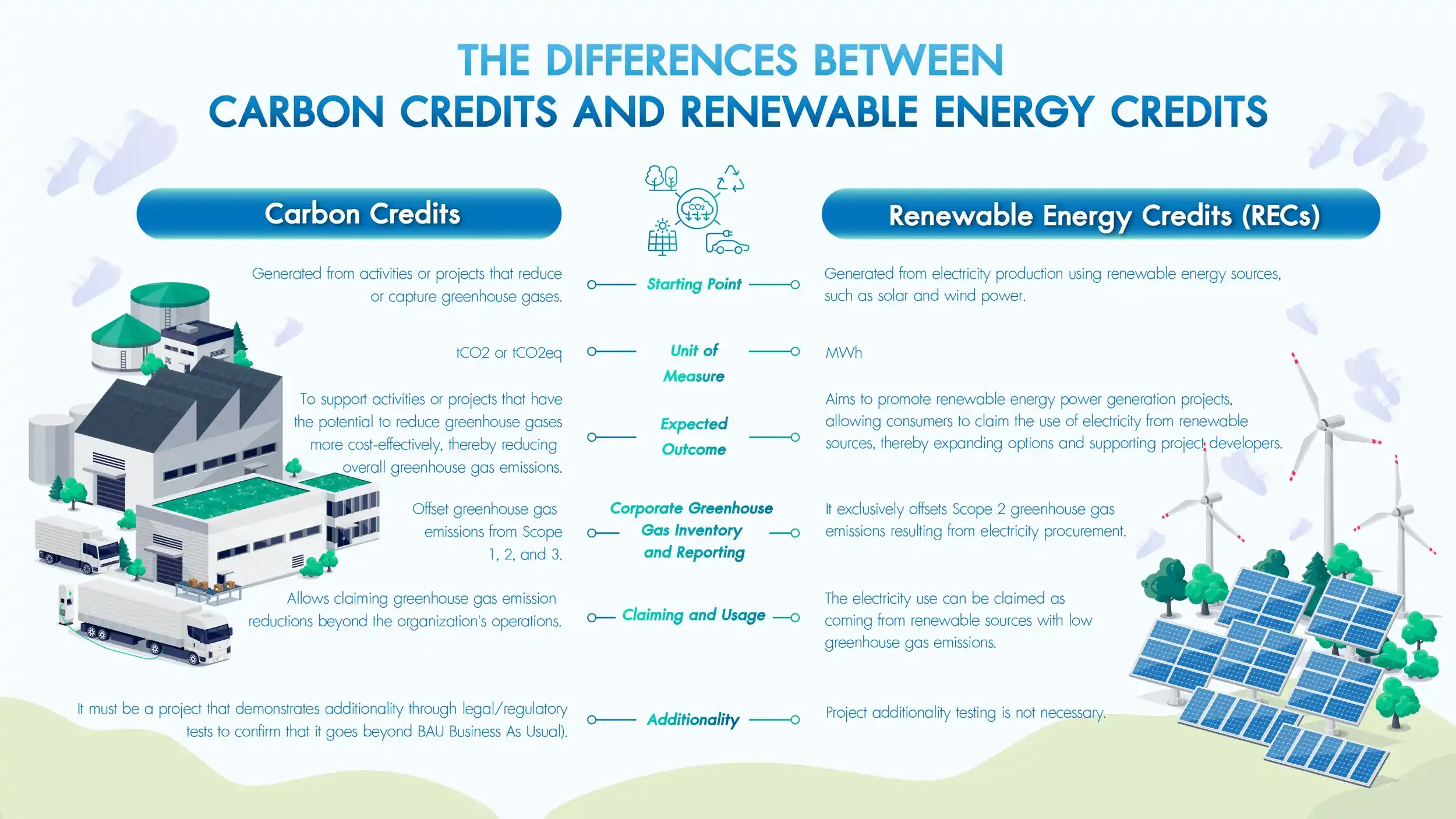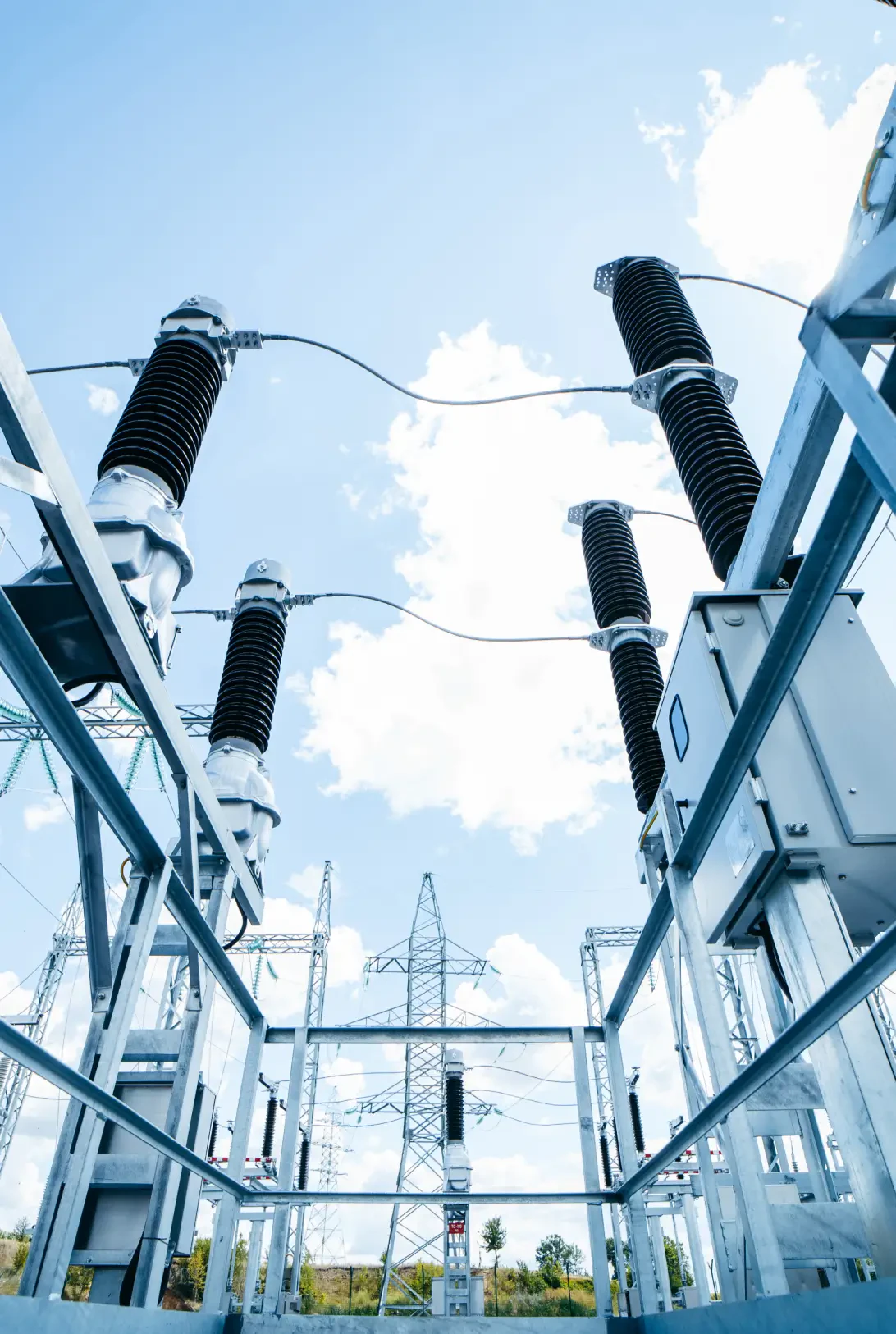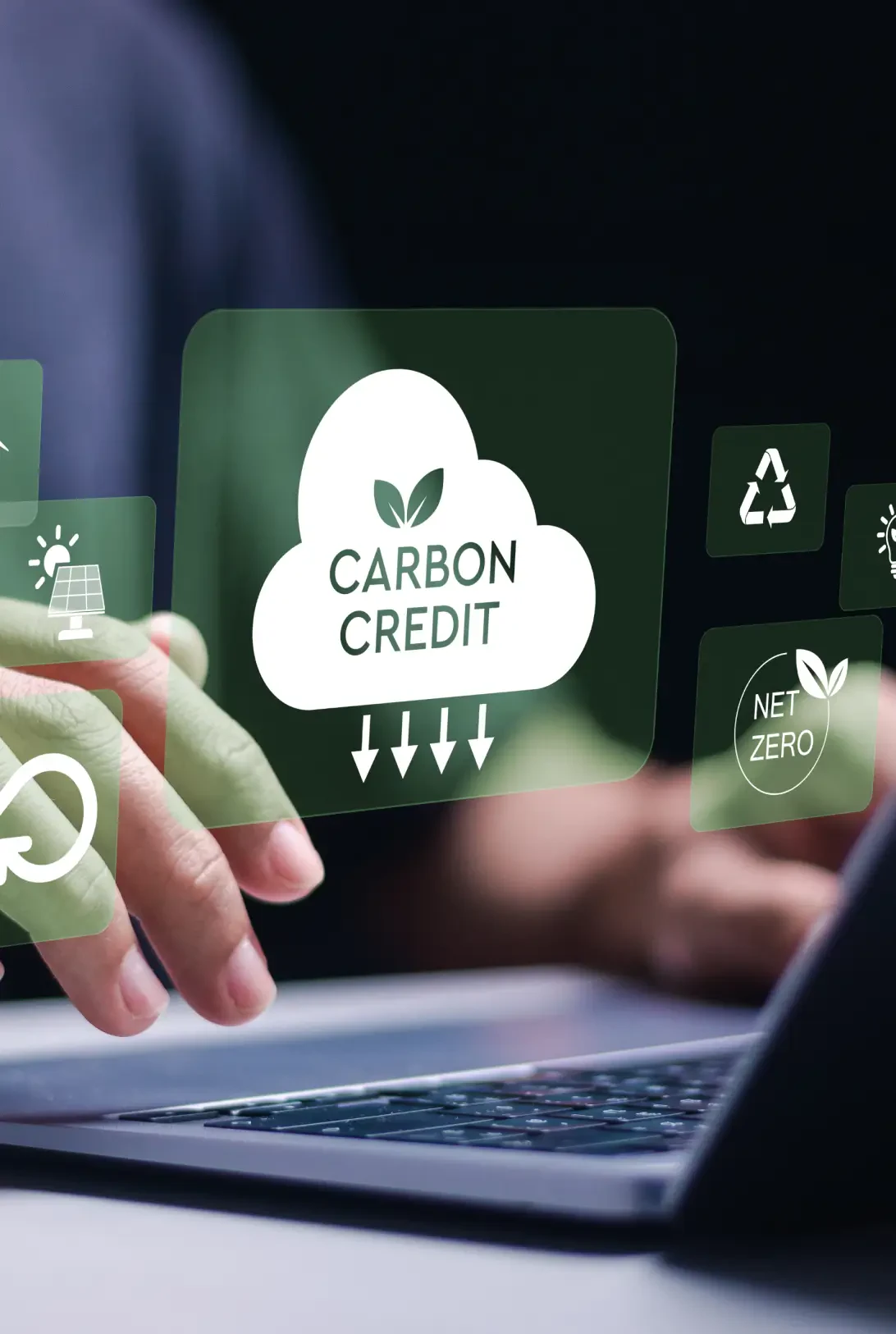
Emission Reduction Services (Introduction)
The Mechanism that Enables Electricity Producers and Consumers to Claim the Production and Use of Electricity from Renewable Energy Sources
Emission Reduction Services or services for reducing green house gases emissions provided by WHA Utilities and Power Public Company Limited are designed to support organizations or businesses in decreasing greenhouse gases and pollutants released into the atmosphere. These services are essential for mitigating environmental impact and ensuring compliance with environmental laws. The tools that can be utilized for carbon offsetting include:

REC VS T-VER
Today, many organizations are moving toward sustainability goals, whether by reducing greenhouse gas emissions or by switching to renewable energy, in order to address climate change. Two important instruments that are often discussed in this context are REC and T-VER. While both relate to environmental responsibility, they serve different purposes and are applied in different ways.


Ready to take the first step towards a greener future?
Contact us for more information
E-mail : marketing@wha-group.com
Line : @whauppower
Contact Us Form : https://bit.ly/WHAUPREC
Tel : (662) 719-9559











